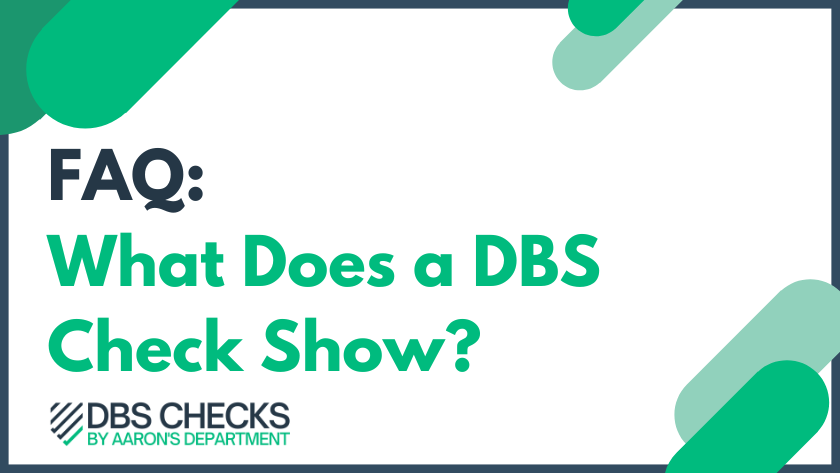What Does a DBS Check Show?
A DBS check (Disclosure and Barring Service check, formerly known as CRB check or Criminal Records Bureau check) is a check on an individual’s criminal record and other relevant information held by the police and government departments.
The level of detail included in the check depends on the type of check being requested, as well as the level of access required by the individual or organisation making the request.
There are three types of DBS checks in the UK, and different information will be disclosed depending on the check. These are:
- Basic DBS check: Shows unspent convictions and conditional cautions only.
- Standard DBS check: Shows spent and unspent convictions, cautions, reprimands and final warnings.
- Enhanced DBS check: Shows the same as the Standard DBS check, plus any additional information held by local police forces and/or government departments that is deemed relevant to the role being applied for.
- Barred List Checks: These are not standalone checks, and are applied to an Enhanced check. These will reveal whether the applicant is barred from working with Children or Vulnerable Adults.
How Far Back Does The DBS Check Information go?
A DBS check will make use of all the records the DBS and Police have access to. This means that all of an applicant’s information will be included in the results. Other than spent convictions not showing on Basic checks, there is no “timeout” on what is included on a DBS check. Take a look at our FAQ page for this question for more information.
